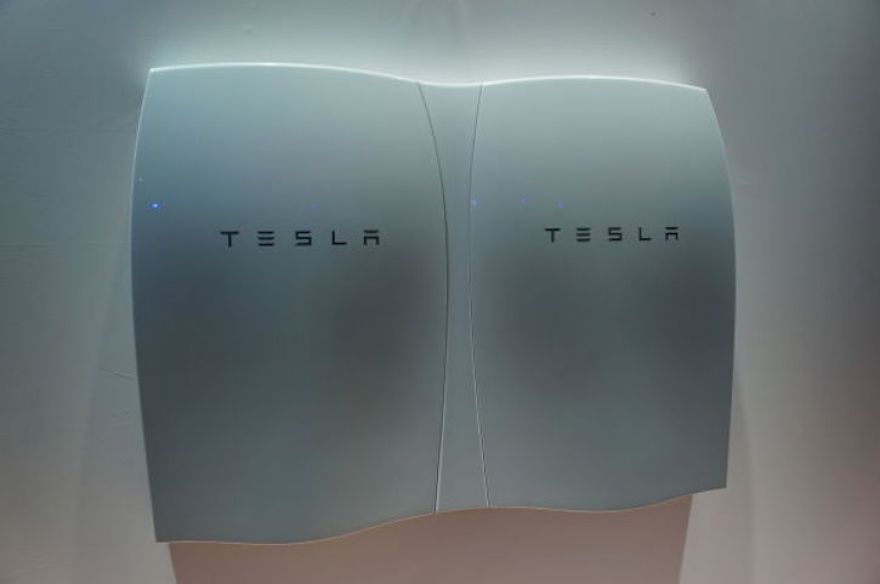The new Powerwall, is a residential rechargeable lithium-ion battery which is designed to capture and store from 7 up to 10kWh of energy from wind or solar. The plan was to generate enough energy that can be used at night or as a backup during power outages.
The batteries are being developed as wall panels, with a very smooth and elegant design and can connect to the internet so users can monitor their performance. The size is practical enough, about 33 inches wide, 51 inches tall, and 7 inches deep, so they can be placed inside a garage or on an outside wall of the household.
The technology behind these batteries is similar to the one found in Tesla’s Model S car, although they store less energy. The Powerwall, besides the lithium-ion battery, consists of a liquid thermal control system and software that receives dispatch commands from a solar inverter.
Tesla’s CEO Elon Musk wittily remarked, during the unveiling of the new batteries at the company’s design studio in Hawthorne, California, that we have one handy fusion reactor in the sky called the Sun and that we don’t have to do anything about Powerwall, it just works. He pointed out that the Powerwall project can match or even surpass Tesla’s electric car business. Musk also stated that it is not impossible for humanity to change the fundamental infrastructure of the world and that Tesla Energy patents will be an open source, allowing everyone, even the competitors, to contribute in accomplishing that goal.
Tesla Energy is also planning the production and distribution of the Powerpack project, a 100kWh battery storage block. Musk said that these batteries could be used in locations where there are no transmission lines in place.
Although this type of battery is not an innovation in the energy storage market, Tesla Energy is offering competitive prices and terms. The cost-effectiveness of these batteries is the subject of debate, but it really depends on the way they are being used. For example, in households with solar panels their usage will be much more economic as they will be using free energy from the sun to recharge. If they are being used without solar panels, they can be recharged during off-peak hours.
The prices vary between 3000$ for the 7kWh version designed for daily cycles and 3500$ for the 10kWh one, intended for weekly cycles. Those prices don’t include an AC-to-DC power inverter or installation but the panels come with a bold ten-year warranty.
The first units are expected to arrive in August this year.









